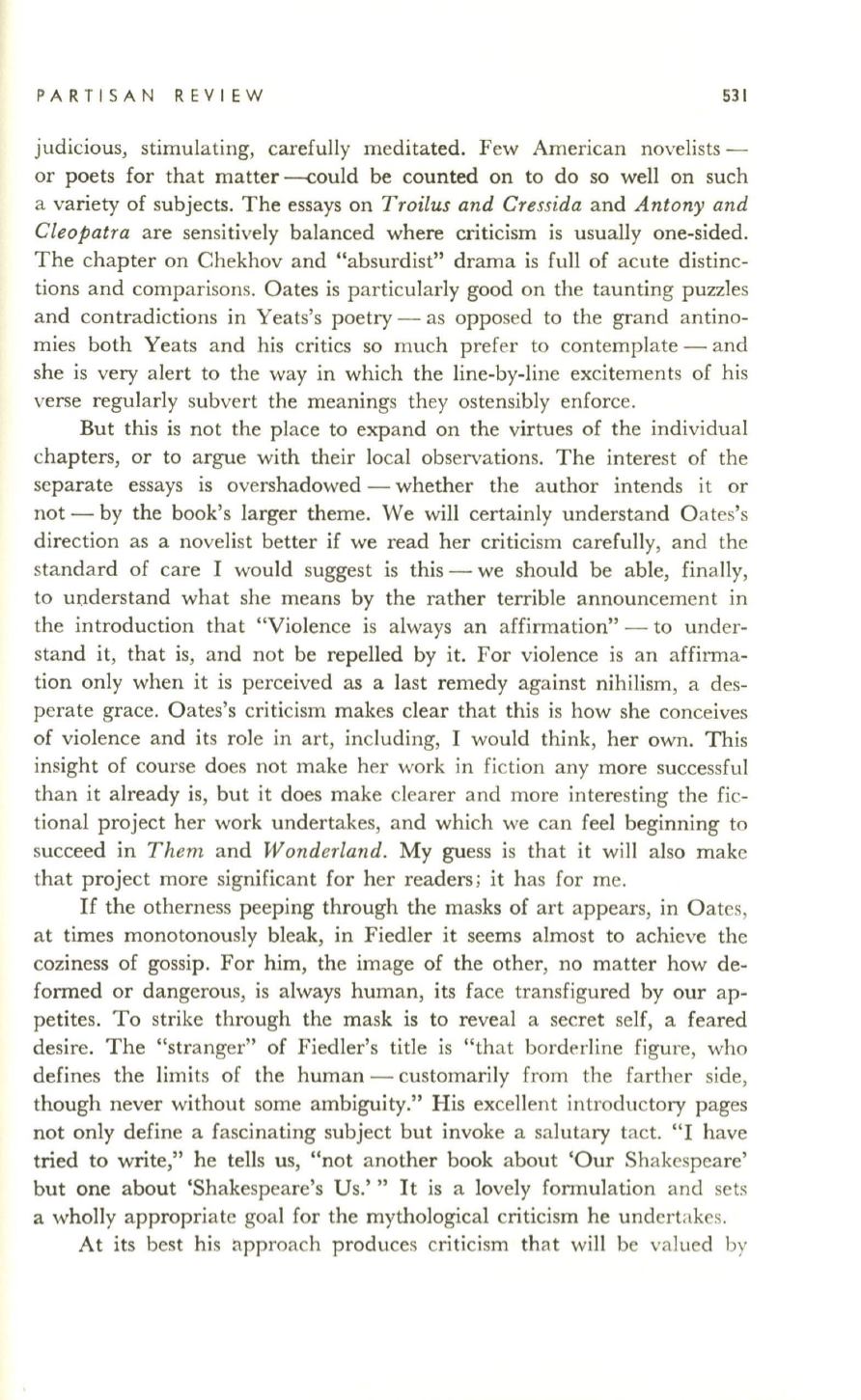
PARTISAN REVIEW
53 1
judicious, stimulating, carefully meditated. Few American novelists–
or poets for that matter --{;ould be counted on to do so well on such
a variety of subjects. The essays on
Troilus and Cressida
and
Antony and
Cleopatra
are sensitively balanced where criticism is usually one-sided.
The chapter on Chekhov and "absurdist" drama is full of acute distinc–
tions and comparisons. Oates is particularly good on the taunting puzzles
and contradictions in Yeats's poetry - as opposed to the grand antino–
mies both Yeats and his critics so much prefer to contemplate - and
she is very alert to the way in which the line-by-line excitements of his
verse regularly subvert the meanings they ostensibly enforce.
But this is not the place to expand on the virtues of the individual
chapters, or to argue with their local observations. The interest of the
separate essays is overshadowed - whether the author intends it or
not - by the book's larger theme. We will certainly understand Oates's
direction as a novelist better if we read her criticism carefully, and the
standard of care I would suggest is this - we should be able, finally,
to understand what she means by the rather terrible announcement in
the introduction that "Violence is always an affirmation" - to under–
stand it, that is, and not be repelled by it. For violence is an affirma–
tion only when it is perceived as a last remedy against nihilism, a des–
perate grace. Oates's criticism makes clear that this is how she conceives
of violence and its role in art, including, I would think, her own. This
insight of course does not make her work in fiction any more successful
than it already is, but it does make clearer and more interesting the fic–
tional project her work undertakes, and which we can feel beginning to
succeed in
Them
and
Wonderland.
My guess is that it will also make
that project more significant for her readers; it has for me.
If
the otherness peeping through the masks of art appears, in Oates,
at times monotonously bleak, in Fiedler it seems almost to achieve the
coziness of gossip. For him, the image of the other, no matter how de–
formed or dangerous, is always human, its face transfigured by our ap–
petites. To strike through the mask is to reveal a secret self, a feared
desire. The "stranger" of Fiedler's title is "that borderline figure, who
defines the limits of the human - customarily from the farther side,
though never without some ambiguity." His excellent introductory pages
not only define a fascinating subject but invoke a salutary tact. "I have
tried to write," he tells us, "not another book about 'Our Shakespeare'
but one about 'Shakespeare's Us.''' It is a lovely formulation and sets
a wholly appropriate goal for the mythological criticism he undertakes.
At its best his approach produces criticism that will be valued by


